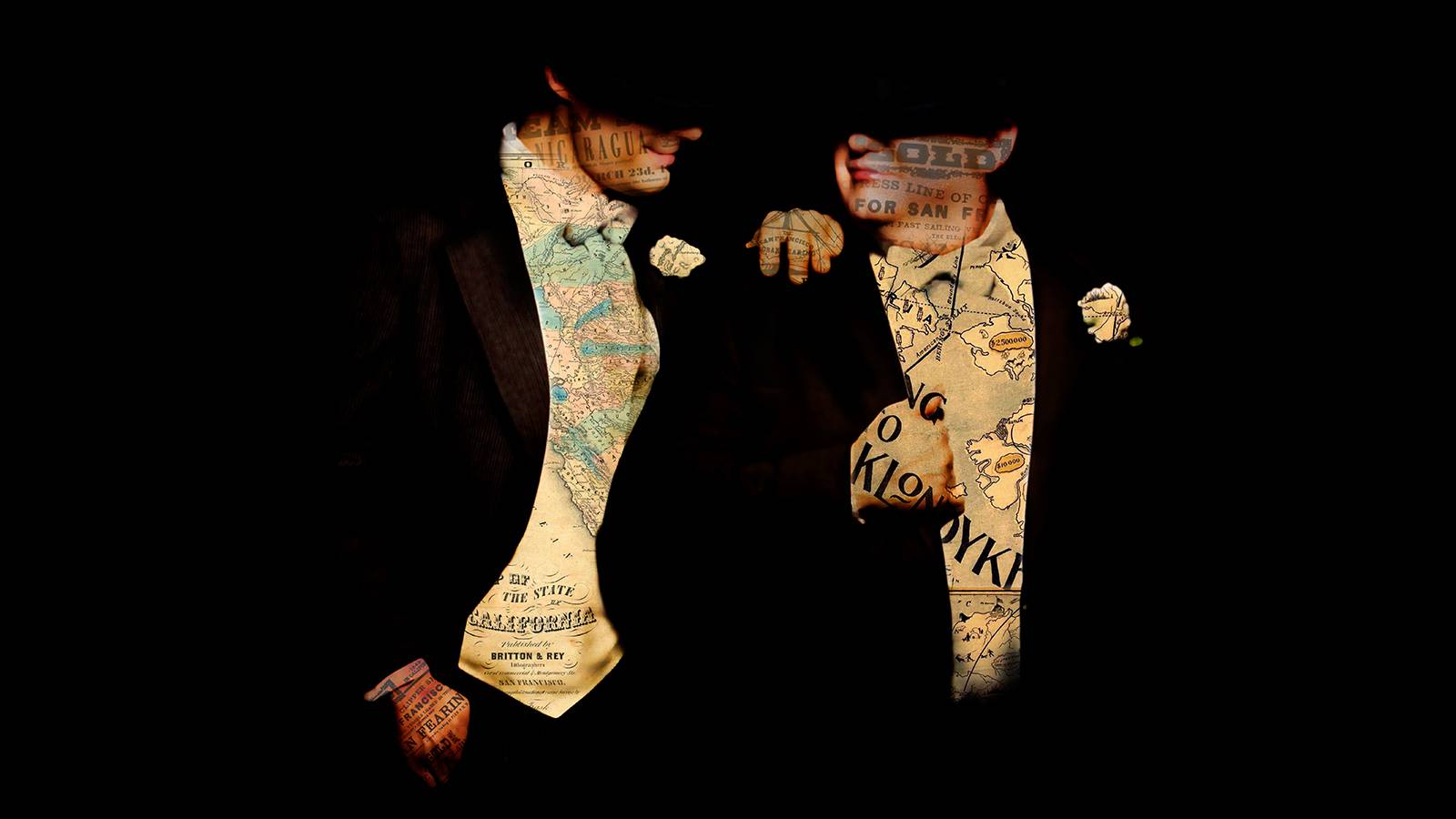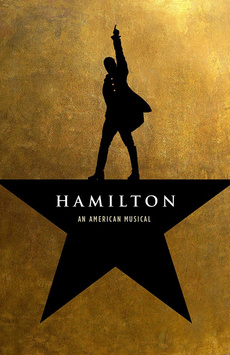Books, movies, food, and random thoughts in English and Chinese. Sometimes I confuse myself.
Search This Blog
Monday, February 29, 2016
Road Show
How fortunate that I live in the Washington DC area and get to see more Sondheim shows than anyone living now in New York City. At places during this rarely produced musical, I did wonder where the "Road" was leading, but the last 15 minutes really pulled itself together and made everything work.
Not having seen all of Sondheim's musicals, I don't know for sure if this is the first time he presented a gay romance in any of his work, but it is the first time I've seen him do it. The song "The Best Thing That Ever Has Happened," sung between an older man and his younger lover, is a blatant reference to his own life. I cannot help but shiver at the association. And the climactic confessional song about family --- that years and people come and go but one is forever stuck with his family --- says it all. That's what everything comes down to.
I can see why this doesn't suit Broadway, and I can see why critics feel mixed about it, but Road Show as Sondheim's last musical only added to my love for him. It may not be a masterpiece, but it's intimate and personal and, as such, does not cater to anyone. Why should he, at the end of a Shakespearean career?
The music. Oh the music. Can someone please do an instrumental recording of the complete Sondheim? Over and again during the show, I was drawn away from the story and lyrics by the lone piano tune that dominated the production, with an occasional fiddle. It's catnip to me. Inside I was twitching with delight.
Tuesday, February 23, 2016
Hamilton the Musical
When a friend of mine told me that she could not get tickets to Hamilton this summer --- or in fact for the rest of 2016, I was flabbergasted. Last summer, after it opened on Broadway in July, I bought 2 tickets in August for a Saturday (!) matinee show in September. How could the wait become a whole ye... Damn you online scalpers!
I have tried to explain to a few people just what is so successful about Hamilton that has caused such a breathless sensation. It's hard. I don't think Lin Manuel Miranda, the writer of the musical who adapted it from a biography written by Ron Chernow, can fully explain it. Everything clicks in various surprising and mind-tickling ways. So many things could have gone wrong in this rather daring re-telling of American Revolution from the point of view of Alexander Hamilton. It could have been too cynical or too earnest, too reverential or too disrespectful, too serious or too silly, too boring or too absurd ... Somehow by some miracle of not only Miranda's skills but also his personality, it has circumvented every gaping pitfall and kept the tone to an improbably perfection that pleases everyone. Unless you are a raging white supremacist who carry the Klan membership card in your pocket, everyone from a rabid liberal to a recalcitrant conservatives is thrilled and charmed by this portrait of a young United States. It's so universally flattering, except to maybe a British royalist, that you don't even feel the flattery.
Of all the things that have been vehemently praised by pretty much every talking head associated or unassociated with musical theater, one extraordinary thing is the fact that it has a cast of almost entirely minorities. The key actors are primarily black, some Hispanic (including Miranda himself who is Puerto Rican), and one Asian (Phillipa Soo). Of course it was a conscious decision to give many underrated and underappreciated actors a place to shine. Miranda has said in several interviews that he wanted to represent the faces of America then --- European immigrants fighting for independence --- with the faces of America now, as recent immigrants have predominantly darker skin. But, I can't help the feeling that the casting was initially dictated by his writing voice.
LM Miranda can juggle multiple music styles, but his specialty has always been rap, as shown in his previous musical In the Heights. He admitted in one interview that he started thinking about writing the show as he gobbled down Chernow's book for the first time. The voice in his head was the voice most familiar to him: rap. In 2009, he wrote one rap number summarizing Hamilton's life and performed it at a White House event. It was well received. From the beginning, the basic voice of this musical had to be rap.
The next logical conclusion must have been that he would have to cast several black actors to perform his rap lyrics. I don't know if the image of a cast of white Broadway actors rapping as Hamilton, Jefferson, Madison, and Aaron Burr crossed his mind. It did mine and gave me a shudder. It would have been so wrong in so many ways, not least the suggestion of cultural appropriation and reminder of repeated insults to minorities from the birth of this nation. No, his lines would have to be sung/spoken by black actors (and himself) who know what they are doing. As such, a minority-dominated cast is not only preferred but practically inevitable. Indeed, he had to convince a professional rapper friend, Daveed Diggs, to suspend his tour to join the cast. Diggs turned out to be an absolute highlight of the show.
Would this pose an issue as Hamilton goes on a National tour to Chicago and Los Angeles? Can they find a predominantly black and Hispanic cast who can handle the demanding lyrics and rhythm? We'll have to wait and see.
Monday, February 8, 2016
Golden State Warriors
According to NBA schedule, the match between GSW and Washington Wizards on February 3 was the last (only?) game of the 2015-2016 season to have GSW in the Verizon Center. Thus it was no surprise that the ticket prices reached a height for the Wizards franchise not seen in the past 6 years, surpassing even the Eastern Conference semifinals in the past 2 seasons. When Mr. S and I arrived at the arena before the door opened, the lines were swarming 7th Ave between F and G Streets.
"Everyone's a Warriors fan now," said the middle-aged man in the seat to my right. "It's like a teabag. Just dip it in hot water and you get tea, every time." Hmm ... He was no new fan, as he lives in Marine County, across the Bay from Oakland.
I'm one of those freshly brewed Warriors fan, swept onto the Stephen Curry bandwagon only a couple of months ago, after over a decade of indifference to NBA. I did watch the televised playoffs for a few years in the 1990s, when Michael Jordan was approaching his first retirement. Perhaps it was the resignation in a sports commentator's voice I heard on NPR, when he talked about Curry. The tone brought up the memory of how people were talking about Jordan, implying something like, "Here comes a mad genius. What can anyone do but lie down and be trampled?"
And trample he did. In the game against Wizards, Curry scored 51 points. I must say that Wizards fought hard and played especially well. John Wall scored 41 points. Nene almost hit every free throw. GSW nevertheless won by 13 points in the end, but the match was, at one point, only a 2-point game. It was in the middle of second quarter, I said to the man from California, "If something should happen to Curry, where would the Warriors be?" He thought about it and agreed, "Yeah, they'd be a middling team."
Beyond marveling at the impossible speed of the play --- I tried to catch a glimpse of formations and ball movement, but the only thing I saw was a few picks and rolls --- I wondered about what is the so-called "star quality." What is the quality that makes a team build their strategy around one player, so that he makes or breaks their success over a whole season, or several seasons? How does this shape the interpersonal dynamics and motivations of the non-star players in a team setting? Do they envy him and resent him while also depending on him? I used to think that individual sports, like figure skating and tennis, are more psychological than team sports, like football (soccer and basketball). But I might be wrong there.
The Californian man said, "The other guard, Klay [Thompson], is actually as good as Steph, he just doesn't believe it."
I was reminded of Scottie Pippen. All those years ago I had a very low opinion of Pippen. I thought Jordan was hitting all the crucial jumpshots and layups in the last quarter, while Pippen was missing them. He was just riding on Jordan's coattail. Only now I saw my error. There can never be two Jordans in one team. Why? I don't know. It was no small feat for Pippen to remain a good player, steady and uncomplaining at Jordan's side.
At the next game, Curry shot rather poorly and scored only 26 points. Oklahoma City Thunder nearly won the match. Near the end, the teams were tied at 104. And yet, Curry either scored or assisted and was responsible for a string of successful offense efforts in the final few minutes. GSW won 116-108, despite Kevin Durant's 40 points. What makes a player so ... clutch? So deadly that his teammates mentally rely on him? I am convinced this is more than physical talent and superhuman effort. A key ingredient must be psychological.
Stars like Jordan and Reggie Miller and Kobe Bryant, now Curry, have been described as "cold-blooded" or having "killer instinct." It is not that they lack mercy while mere mortals are unconsciously reluctant to defeat the rivals. Rather, the mere mortals are inhibited by something other than mercy --- perhaps an anticipation of victory and all its spoils and associated fear of losing all those by one's own failure. I think the ancient Indians had it right --- only when one detaches himself from the fruit of his action, be it bitter or sweet, can he find the courage and focus to do what he must do now. And the effect may be even stronger on others around him.
Stars like Jordan and Reggie Miller and Kobe Bryant, now Curry, have been described as "cold-blooded" or having "killer instinct." It is not that they lack mercy while mere mortals are unconsciously reluctant to defeat the rivals. Rather, the mere mortals are inhibited by something other than mercy --- perhaps an anticipation of victory and all its spoils and associated fear of losing all those by one's own failure. I think the ancient Indians had it right --- only when one detaches himself from the fruit of his action, be it bitter or sweet, can he find the courage and focus to do what he must do now. And the effect may be even stronger on others around him.
Subscribe to:
Posts (Atom)
The Ending of Le Samourai (1967), Explained
A quick online search after watching Jean-Pierre Melville's Le Samourai confirmed my suspicion: The plot is very rarely understood b...


